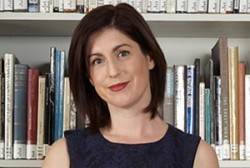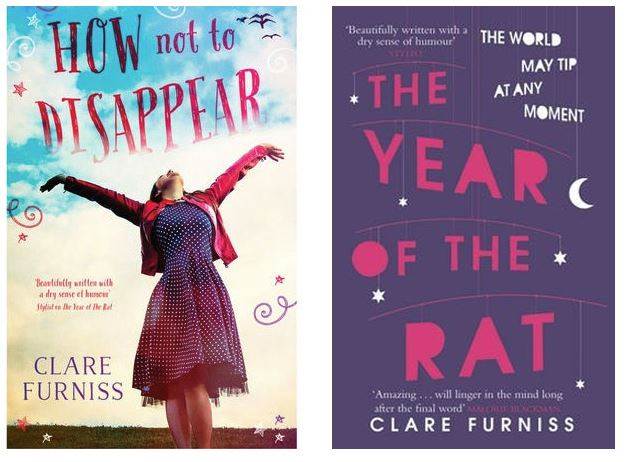Clare Furniss interview: 'It's never possible to know what all the consequences of any decision will be'
Published on: 09 March 2016 Author: James Doherty
As part of our 'choices' month, we spoke to Clare Furniss about her book How Not to Disappear, choices her characters make and her advice for younger people.

How important is it to give your characters difficult choices, and what does it do for a story, do you think?
Part of growing up is having to make decisions for yourself. The teenage years may be the first time someone has to make important choices about their future and the choices they make sometimes bring them into conflict with adults.
I think this makes it a great area to explore in YA, as well as the fact that choices are not always clear cut.
We really loved the relationship between Hattie and Gloria and the way that their stories intertwined to explore the choices they were given and denied. What was important to you in thinking about how to represent the issues of choice in this book?
The relationship between Hattie and her great-aunt Gloria is the heart of the story and telling both their teenage stories meant I could explore how things have changed for girls since the 1950s and also how they haven't.
The most important change was that we have so much more choice now: choice about whether to go to university, have a career, get married, have children. Many women in the 1950s didn't feel they had these choices, there were simply expectations they had to meet.
You've said that How Not to Disappear was inspired by the women in your family. How do you think families best empower young people to make choices? Is it always about making the 'right' choice?
There were a lot of strong older women in my family as I was growing up who definitely influenced the book. My grandma also had Alzheimer's like Gloria in the book. In terms of choices, part of what I'm exploring in the book is the fact that, really, no one can know at the time whether they are making the 'right' decision.
It's never possible to know what all the consequences of any decision will be. As a parent I know very well the instinct to protect your child but mistakes are an essential part of growing up. They are how we learn, not only about the world and other people but about yourself. They teach us how to be resilient.

It feels sometimes like young people today aren't allowed to make mistakes, with the constant pressure to be 'perfect' on social media and with the increased focus on testing at school. What would you say to young people about that?
I think there is an enormous amount of pressure on young people (and girls in particular) to be perfect - flawless in their appearance, thin, smart, popular, hardworking, fun... And social media means it's much harder to escape those pressures, to find your own space.
But perfection is a myth. Many girls feel under massive pressure to achieve something that is actually impossible. I want to show in my books that it's fine to be flawed, to make mistakes, that imperfections are what make us human.
Lastly, what are your favourite books for children and young people that feature characters making important choices?
Trouble by Non Pratt tells the stories of pregnant Hannah and her friend Aaron and explores decisions and consequences. Last Leaves Falling by Sarah Benwell is about Sora, a boy who has been diagnosed with ALS and how he chooses to face his future. Both are wonderful books by extremely talented authors.
Topics: 12+, Coming-of-age, Adoption, Bereavement, Family, Fathers, Grandparents, Pregnancy, Interview, Mental health, Monsters, Features





